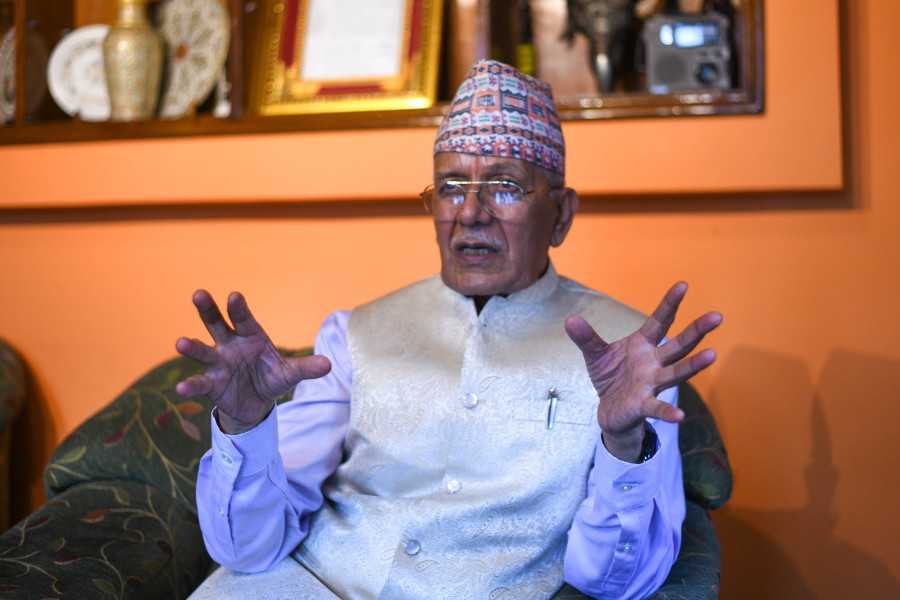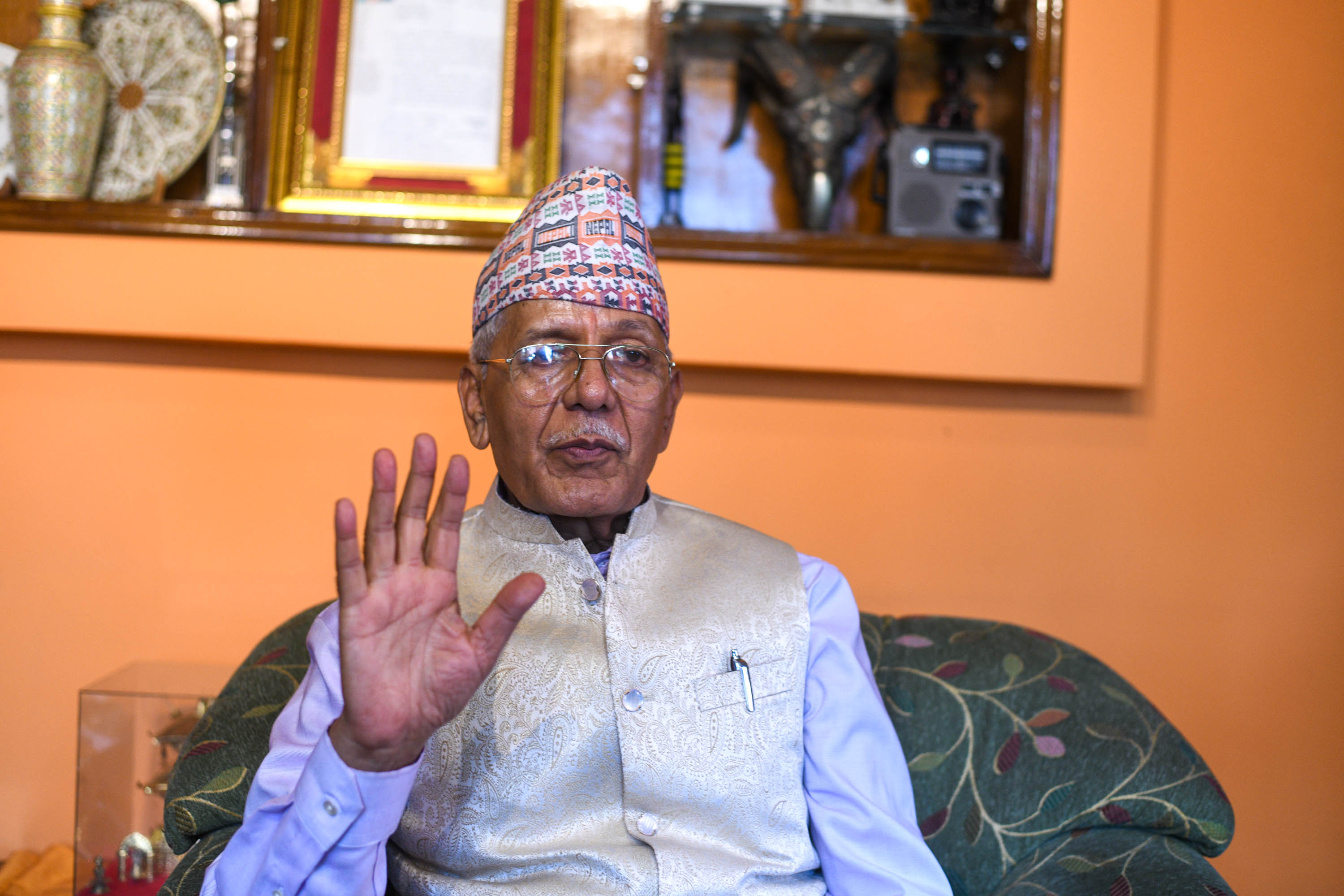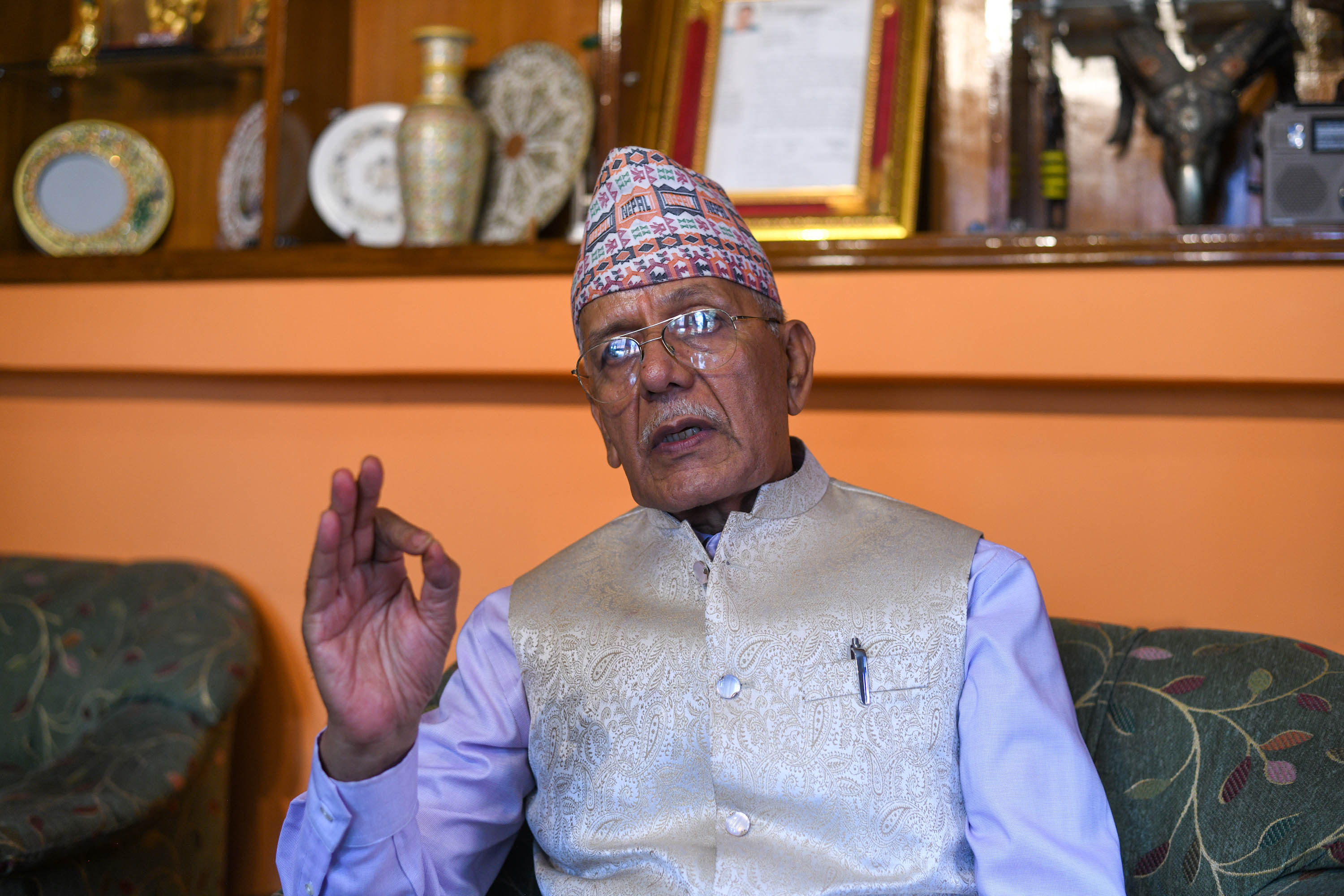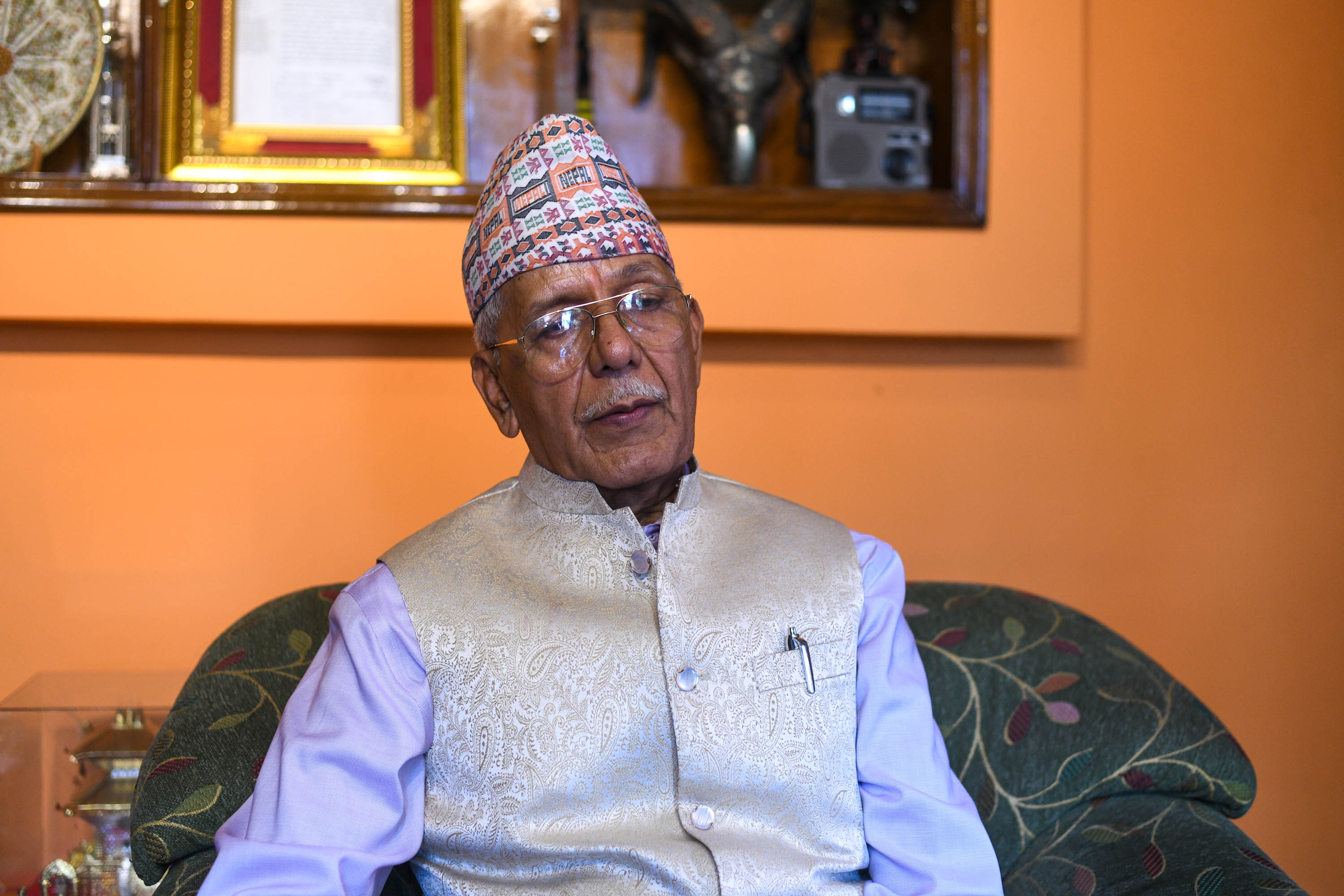Interviews
Current preparations inadequate to hold elections on March 5
Enabling Nepalis living abroad to vote in the elections is a welcome thought. But it’s a misplaced priority right now.
Biken K Dawadi
The interim government led by Prime Minister Sushila Karki has been mandated to conduct elections by March 5. But is the country prepared for elections in such a short time, in terms of security, logistics and broad participation? And is it realistic to expect the government to arrange for Nepalis living outside the country to vote? The Post’s Biken K Dawadi sat down with former Chief Election Commissioner Neel Kantha Uprety.
Having served as the chief election commissioner during the Khilraj Regmi-led interim government which successfully conducted fresh polls in 2014, how different is it for the country to conduct elections under an interim government than under a regular government?
The government formed through the parliamentary process is comparatively more stable than an interim government. It has the mandate to run the country for five years. An interim government is formed for a shorter time with simpler goals such as holding the general elections. As holding a national-level election calls for joint effort of all stakeholders, it is tedious work, requiring significant effort and time.
Since the works delegated to the Election Commission are significant and are supposed to be fast-tracked, holding an election under an interim government is always a challenge. However, if the pace of work is adequate and if all stakeholders are on board, such elections can be conducted within a set deadline.
Who are the primary stakeholders for conducting elections?
As soon as an election is announced, multiple groups emerge as the stakeholders. The primary stakeholder of a general election is obviously the voters. One of their basic civic responsibilities is to vote. In tandem with the voters, each candidate in the elections is also a primary stakeholder. Their leadership credentials are tested during the election. As political parties field these candidates and provide a common agenda for candidates across the country, they too are a significant stakeholder in the elections. Without taking them into confidence, the commission cannot hold the polls.
Government employees to facilitate the election are important too. So are all of the state’s security forces as their presence is required before, during and after votes are cast. The media and civil society are equally responsible to spread awareness among the general public and as watchdogs of the electoral process. The EC needs to win the confidence of all of these stakeholders.
We are seeing a record-low level of trust in political parties, at least the old ones. How important is their participation in elections?
As ours is a multi-party system, with political leaders supposedly united by a common ideology, active participation of political parties is a must for elections. After all, they choose and field candidates in most constituencies.
In the current political reality, the political parties have no other option than to contest the general election. They cannot go back to the dissolved parliament against the popular demand of the Gen Z movement. A lack of active participation might invite chaotic situations like booth-capturing and ballot box tampering.
Therefore, the commission needs to call all political parties for discussion on the general elections and ensure their active participation.

Photo: Deepak KC/TKP
What roles do security forces play in holding polls?
Each of the security forces plays a different role in the elections. Before the election date, Nepal Police plays the pivotal role of ensuring the security of the candidates and nominees, and enforcing election rules. They also act as the first line of security during elections and secure ballot boxes during and after the elections. The Armed Police Force (APF) acts as the second line of defence, providing resources, including manpower and additional equipment as required by the Election Commission throughout the electoral process.
The Nepali Army personnel deployed in each district serve as the backup in case of external interference during elections. More importantly, the army oversees the secure transport of sensitive resources such as ballot paper, ballot boxes and other equipment vital for vote casting.
The infrastructure and equipment of Nepal Police are in tatters following the riots of September 9. How would a weakened security force affect the election timeline?
Again, the police are essential for holding polls. The sense of security displayed during elections must be enough to garner the confidence of the people and political parties. Otherwise, they might claim that the election was unfair and demand re-elections, further complicating the process.
With around 200 police posts lost to arson, around 300 partially damaged and hundreds of vehicles torched, the current capacity of the police is insufficient to support the general elections.
The interim government must take stock of the losses faced by the police organisation and expedite the process to rebuild infrastructure and procure sufficient equipment. The quicker the police are strengthened, the more prepared they will be to support the general elections.
Will financing the election be a problem?
The government plans to raise Rs 100 billion for the upcoming elections and reconstruction of damaged public properties. We do not know what portion of it will be dedicated to facilitate the elections. If a good portion is allocated for the elections, it will be more than enough.
But if the majority of the amount is allocated for rebuilding purposes, we might need to look for external financial support. In the past, India provided the commission with up to 200 vehicles in a single election cycle. We should seek such international support if necessary.

Photo: Deepak KC/TKP
The Election Commission is supposed to have five commissioners, but there are only three at the moment. Will three commissioners be able to hold elections?
Take the example of our southern neighbour. India has three election commissioners and they hold polls in a country 22 times larger than Nepal. Three election commissioners are enough to conduct general elections in Nepal. In fact, the commission is overloaded when there are five commissioners. Our focus needs to shift from the election commissioners to technically-capable manpower to facilitate the elections. The EC needs to be in the position to attract and retain such individuals.
What are other persistent problems seen during our elections?
One persistent problem is the inability of voters to cast a vote from outside their constituency. We need provisions to address this problem. We also have problems with late stock-taking of our resources and even later demand for necessary resources.
For example, there are insufficient ballot printing machines at the EC and it is always a problem to procure them overnight. The case of transport is no different. We should not procure vehicles at the last moment when we can anticipate the need for smooth transport of ballot paper, boxes and voters list.
At the current pace, can the EC hold the election on time?
No. The EC will not be able to hold the elections on March 5 at the current pace of preparation. It can hold the election on time only if it starts expediting the processes.
What steps does the commission need to expedite to conduct timely elections?
First, the government needs to immediately issue an ordinance to change our election laws that currently halt voter registration after elections are announced. Individuals over 18 years of age should get a chance to register as voters and voters list must be updated accordingly.
Second, the updated voters list from the district election offices must be immediately sent to the central office of the EC to be entered in the central database. And the information from the central database must be relayed back to each district election office.
Third, each district election office as well as the concerned security offices must be assessed to understand their needs. The EC needs to take stock of the number of capable government officers, equipment and buildings. The government needs to expedite the process to rebuild the infrastructure of the police and APF. In addition, enough vehicles must be provided to each of these offices.
Fourth, after the EC takes stock of the government employees in each district, it must plan to mobilise them and transfer them from one district to another as per the need of the local governments.

Photo: Deepak KC/TKP
Should enabling Nepalis abroad to vote be a priority of the caretaker government?
Enabling Nepali voters currently abroad to vote in the elections is a welcome thought. But the priority seems to be misplaced. We should currently be thinking about enabling voters from a certain district to cast their vote from another district where they might be currently residing.
A daily wage worker from, say, Saptari cannot cast a vote from their work city of Kathmandu under the current election provision. The cost of travelling to their home district to cast a vote is irrational for many people. If the EC can facilitate voting from a different district, then it can simply apply the mechanism to Nepali voters based in foreign countries.
The EC should run pilot programs to test out-of-district voting. They can set up an election portal and let voters residing in districts other than their permanent residence access the portal. Perhaps an One-time Password (OTP) can be used to verify each voter. When the testing is successful, the same mechanism could be used to enable voters abroad to cast a virtual ballot.
What can be done to cultivate public trust in the elections?
To cultivate public trust, the EC must focus on expanding voters’ education on electoral democracy. We must train influential members of our society about the election code of conduct and the electoral process. For example, we used to have the BRIDGE programme, under which one male and one female teacher was trained from each school and they would return to organise programmes in the school to educate the students above 12 years of age on elections.




 18.12°C Kathmandu
18.12°C Kathmandu




.jpg&w=200&height=120)







